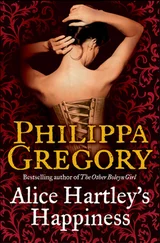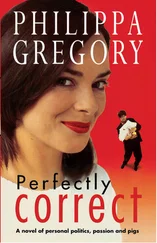After they had had thirty minutes, to the second, I called in my clear confident voice ‘All right! Back to work!’
The men and the women got to their feet as willingly as pigs coming out of mud to the killer. They glared at me, surly and cross, but no one did more than mutter. The sun was at its highest now. Mounted on my horse, unmoving, I could feel the heat of it baking on the coiled hair at the nape of my neck and the sweat making my silk gown damp. The men who had been hobbling, bent-backed, back and forth through the corn, swinging their sickles, looked like fever patients, so white and drenched in sweat. And the women look drained, mortally ill.
‘Gather round,’ I said peremptorily, and waited until they stood around me docile as cattle in a head-bowed half-circle. I noted, with a shiver of displeasure, that no one stepped on my shadow. When Tobermory shifted his weight so the shadow moved, the crowd swayed like a wheatfield with him, so my shadow touched no one.
‘Turn out your pockets,’ I said baldly. And my gaze drifted over every head bent with weariness and humiliation at this fresh shame.
‘Turn them out, I say.’
There was a dull silence. Then one of the young men, one of the Rogers lads, stepped forward.
‘Those are reaper’s rights,’ he said. His young voice clear as a mellow-toned bell.
‘Let’s see yours,’ I said instantly on the attack. ‘Turn them out.’
He clasped his hands over the pocket flaps of his leather breeches.
‘Those are reaper’s rights,’ he said. ‘You should not muzzle the ox that treads the corn. We’re not oxen in Acre, yet. We’re reapers, skilled reapers. And a handful of corn, morn and night, is the reaper’s due.’
‘Not any more,’ I said coldly. ‘Not on Wideacre. Turn out your pockets or turn out of your cottage, young Rogers. The choice is yours.’
He glared at me, baffled.
‘You’re good for us no longer, Miss Beatrice,’ he said in despair. ‘You held to the old ways once, and now you’re worse than a workhouse ganger.’
He pulled up the pocket flaps of the breeches and took a dozen heads of wheat out of one pocket, and a dozen from the other.
‘Throw them down,’ I ordered. He did so without another word. But he kept his eyes to the ground. I had a fleeting insight that he would not look at me so that I should not see that he, a youth earning a man’s wage, was weeping.
‘And now the rest of you,’ I said without emotion.
One by one they stepped forward like mummers in a play and threw down the heads of wheat until it made a tiny, insignificant pile in the deep rich field before me. A meagre theft. Enough to make little more than a couple of loaves. They would have used it for thickening soup, to stretch the bacon and water a little further. To make some gruel for the children, or some pap for the unweaned baby who cried and cried at a dry breast. Altogether it was little gain for the village, and a loss to the estate of a few pence.
‘This is thievery,’ I said.
‘Reaper’s rights!’ someone called from the back of the crowd.
‘I heard you, Harry Suggett,’ I said, raising neither my eyes nor my voice so there was a ripple of fear at my instant identification of the anonymous challenge.
‘This is thievery,’ I said again quietly. ‘You know what Dr Pearce says about thievery: that you will go to hell. You know what the law says about thievery: that you will go to gaol. Now hear what I say about thievery. Anyone I catch with one grain, just one grain, of wheat in their pocket will be handed over to a Justice of the Peace at once, and his or her family, every one of them, will be homeless that same night.’
There was a breath from the crowd, almost a groan, a great ‘ooohhh’, instantly stifled.
‘And there will be no gleaning for Acre until the Chichester workhouse gang have been through the fields gleaning for me first,’ I said firmly. ‘Only when the field is cleared as I wish may you come to see if there is anything left.’
Again there was the sigh of consternation. But they could say nothing. At the back of the crowd was a woman, a young girl, Sally Rose, a mother but no husband to provide for her and the babe. Her coarse apron was up over her head and she was weeping very quietly.
‘Now get to work,’ I said gently. ‘If there is no thieving, and no cheating, you will not find me unfair.’
At the softer note in my voice their eyes flashed to my face. But they were full of suspicion and unease, and all around the circle hands were clenched in the old sign against black magic.
I stayed out in the field all day, and we still had not cut it all. It was an unbelievable harvest, a miracle of a harvest. The untouched common land grew corn as if it had been longing all those innocent heather-filled years to burst into ripple upon ripple of pale yellow. No one filched wheat as far as I could see, and my eyes were sharp enough to see all around the field, although my mind was sluggish and cold and slow.
When the sun started sinking, late in the afternoon, and the sky was like warm mother-of-pearl with fleecy clouds of pink and the pearly greyness of twilight, I said, ‘All right. You can stop now.’
I waited while they cleaned their sickles and stacked them tidily on the wagon. Then they put on their jackets and the women threw shawls over their shoulders for the weary walk home. I watched them file out of the field, all silent, as if they were too tired and too sad for speech. A newly wed couple walked as a pair, with arms around each other, but she rested her head on his shoulder in a gesture that seemed more like sympathy than passion. The older couples walked side by side with a yawning gulf between them that comes from poverty miserably shared that has no ending. A lifetime filled with regrets. I checked that they had fastened the fence carefully behind them, and watched them down the track towards Acre. I kept my horse still until they were out of sight around the corner and I was alone in the glooming wood. Then I set Tobermory to ford the Fenny and cantered along the track towards the drive and my home.
My mind was calm. A good day’s work and a yield better than I had a right to expect. If my luck held and I could be the goddess of good weather just once more, just one more year, the gamble would have paid off.
If I could pay off the most pressing creditors entirely and make prompt repayments on other debts, I could restore faith in Wideacre among the money-men. Once they believed that I could service my debts they would plot against me no more. The spreading of a little gold and the harvest of my fertile fields would serve as good security. These men were foxes — they fed off dying animals; they killed only weak prey. They surrounded Wideacre when they thought it would fail. At the first sight of success I would be offered generous credit again.
The balance between utter ruin and total triumph now rested on whether I could get the wheat in with a surly, rebellious, undernourished workforce, before the good weather broke and spoiled the standing crop. If I did, I should draw a bounty payment from Mr Gilby and Wideacre would be secure for at least a year. The wind seemed set fair, the sky a faithful promise of clear weather on the morrow. The chances were good.
My heart was not light, for my heart was a shard of heavy glass these days, and I despaired of ever again feeling it lift with joy at simply being alive. But my mind at least was calm. And my courage was as dauntless as ever.
So I clicked to Tobermory and he lengthened his fast stride while the shadows and the ghosts slid past us and we saw the lights of the house through the dark pillars of tree trunks of the wood.
‘Gracious, how late you are,’ said Celia, as I clattered into the stable yard. ‘Had you forgotten we were going to supper with Mama?’
Читать дальше
Конец ознакомительного отрывка
Купить книгу












